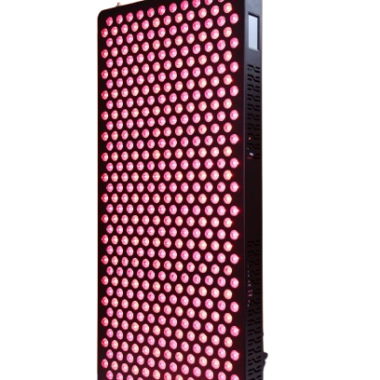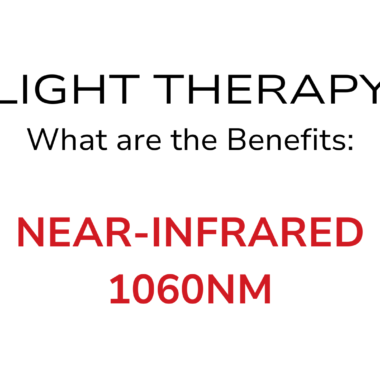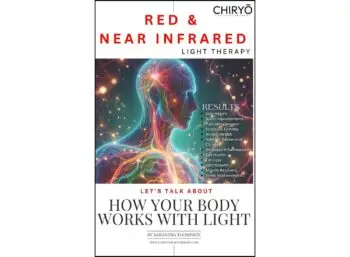
Table of Contents
Toggle1. Who is Yahki Awakening?
A family-driven organisation committed to cellular regeneration, DNA repair, and intracellular detoxification.
Yah’ki Awakening uses a unique combination of a high-energy diet, powerful alkaline botanicals, and amino acid therapy to heal the body naturally.
The foundation of his philosophy lies in the belief that the human body can heal itself when provided with the right environment and resources.
Yah’ki’s journey began with his own remarkable recovery. He healed himself from multiple severe conditions, including high blood pressure, diabetes, kidney failure, and obesity, through fasting, a plant-based alkaline diet, and herbal protocols.
His transformation inspired the creation of Yah’ki Awakened LLC and Eye of Lotus Botanicals, where he shares his methods to help others restore their health.
Yah’ki is a certified Master Herbalist with extensive knowledge in biochemistry, metaphysics, and theoretical psychology.
For over a decade, he has applied these principles to help individuals overcome chronic ailments such as diabetes, autoimmune diseases, and cancers.
He is also a Reiki and Energy Crystal Healer, further diversifying his holistic approach.
At the core of Yah’ki’s teachings is the mission to expose and dismantle the harmful practices of the western medical system, which he believes perpetuate disempowerment and disease in marginalised communities, particularly within the Black community.
Drawing inspiration from leaders like Dr. Sebi and Dr. Amos N. Wilson, Yah’ki merges biblical, mystical, and scientific principles into his teachings, empowering individuals to reclaim their health and identity.
His teachings extend beyond health to include self-awareness, spirituality, and cultural reclamation.
Through his youth foundation, The Black Messiah Project, and public speaking engagements, Yah’ki has become a transformative figure in holistic wellness and social empowerment.
For more information, visit Yah’ki’s website

2. Why Autism and ADHD Need a Nutritional Focus
Autism Spectrum Disorder (ASD) and Attention Deficit Hyperactivity Disorder (ADHD) are conditions that profoundly impact cognitive, behavioural, and social functions.
Traditional treatments often focus on symptom management through medications, which may carry side effects.
Yahki Awakening’s approach offers a natural alternative, rooted in the principle that proper nutrition can significantly influence neurological health and behaviour.
The Gut-Brain Connection
Emerging research highlights the relationship between gut health and brain function.
Children and adults with autism or ADHD often experience gastrointestinal issues such as leaky gut, inflammation, or imbalances in gut bacteria, which exacerbate behavioural and cognitive symptoms.
Nutritional strategies focusing on anti-inflammatory, easily digestible foods can reduce these issues and enhance brain function.
The Role of Diet
Many processed foods are rich in artificial additives, refined sugars, and unhealthy fats, all of which can disrupt neurotransmitter function and worsen hyperactivity or sensory sensitivity.
Yahki advocates for a nutrient-dense, plant-based diet to provide the body with essential minerals, vitamins, and bioavailable compounds.
Superfoods like berries, mangoes, and melons are particularly effective due to their high antioxidant content and natural sugars that support energy without the crash associated with processed snacks.
Impact of Nutritional Deficiencies
Children and adults with autism or ADHD are often deficient in zinc, magnesium, omega-3 fatty acids, and certain B vitamins, which are critical for neurotransmitter production, mood regulation, and focus.
Addressing these deficiencies through diet can improve overall quality of life, enhancing emotional regulation, cognitive clarity, and social interactions.
A nutritional approach offers a holistic, side-effect-free pathway to managing these complex conditions.
Incorporating Yahki’s recommended superfoods can serve as a powerful tool to support both the gut and brain, promoting balance and vitality.
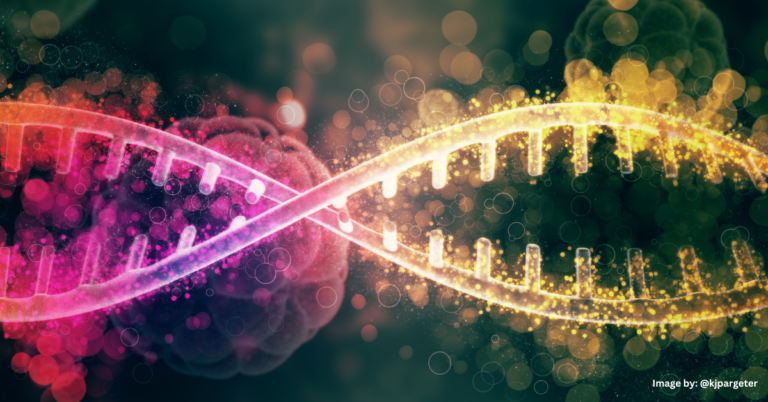
3. Understanding Cells, DNA, and Their Nutritional Needs
Yahki Awakening stresses that our bodies function as interconnected systems, where cellular health is foundational to overall well-being. Every function within the human body—from cognition to immune defence—relies on the proper nourishment of cells and the integrity of DNA.
DNA: The Blueprint of Life
Deoxyribonucleic acid (DNA) carries genetic instructions for the growth, repair, and reproduction of cells. At the ends of DNA strands are telomeres, protective caps that prevent genetic material from unravelling.
Telomere shortening, often caused by oxidative stress and poor nutrition, is associated with aging and disease. Yahki emphasises eating antioxidant-rich foods to protect these vital structures and promote cellular regeneration.
The Role of Minerals
Cells require minerals like magnesium, zinc, selenium, and iron to maintain their structural integrity and enable processes such as enzyme activation and DNA repair. Yahki’s teachings highlight the importance of consuming mineral-dense foods, such as melons and berries, to replenish the body’s stores and optimise cellular function.
Cellular Respiration and Energy Production
Cells produce energy through a process called cellular respiration, which relies on glucose, oxygen, and certain vitamins. Berries, mangoes, and melons provide natural sugars and antioxidants that support efficient energy production, reducing fatigue and enhancing mental clarity.
Cellular Detoxification
Toxins accumulate within cells, impairing their ability to function. Yahki advocates for intracellular detoxification through high-energy foods and alkaline botanicals, which open up pathways like the lymphatic and NRF2 systems to remove waste and restore balance.
Understanding the connection between cellular health, DNA, and nutrition is crucial to unlocking the body’s self-healing potential. Yahki’s approach offers a blueprint for revitalising cellular function through targeted dietary changes.
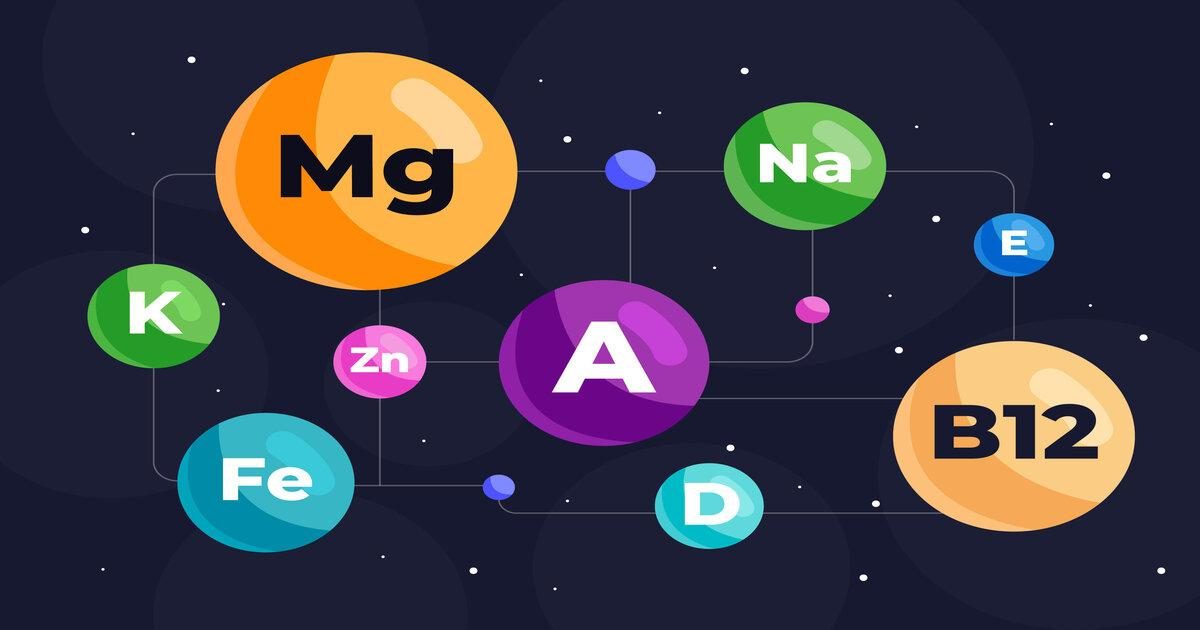
4. Vitamins and Minerals: Building Blocks of Well-Being
Vitamins and minerals are essential for the optimal functioning of the human body, acting as cofactors in biochemical reactions and as structural components of cells.
According to Yahki Awakening, the lack of these nutrients not only disrupts the body’s natural processes but can also exacerbate conditions such as autism and ADHD.
Zinc
Zinc plays a pivotal role in DNA synthesis, repair, and cell division. Yahki highlights its importance in supporting neurotransmitter function, which is particularly relevant for individuals with autism and ADHD who often have imbalances in neurotransmitter pathways. Zinc deficiencies can lead to heightened hyperactivity, emotional dysregulation, and compromised immune health.
Magnesium
Magnesium is essential for over 300 enzymatic reactions in the body, including those involved in energy production and nervous system regulation. Yahki points out that magnesium’s calming effect on the nervous system can aid sleep, reduce anxiety, and improve focus—key concerns for individuals with ADHD. Foods like leafy greens, melons, and certain berries are rich in this mineral.
Iron
Iron is a cornerstone of oxygen transport within the body, carried by haemoglobin in red blood cells. Yahki notes that sufficient iron levels are crucial for brain function and energy production. In children with autism, iron deficiency is often linked to behavioural challenges and learning difficulties. Including iron-rich fruits like watermelon and berries in the diet can be transformative.
B Vitamins
The B vitamin complex, including B6, B9 (folate), and B12, is vital for energy production, mood regulation, and DNA synthesis. Yahki emphasises that these vitamins work synergistically to support brain health and reduce neurological symptoms in autism and ADHD. B-rich foods, such as purple fruits containing cobalt derivatives, are excellent dietary sources.
The body is designed to thrive on a diet rich in bioavailable vitamins and minerals. Yahki’s holistic approach, focusing on whole, unprocessed foods, ensures these critical nutrients are absorbed efficiently for maximum benefit.

5. The Role of Fructose and Glucose in Cellular Health
Fructose and glucose are natural sugars found in fruits and vegetables, serving as primary energy sources for cellular functions. Yahki Awakening underscores their role in maintaining metabolic health and cellular vitality.
Fructose and Glucose: What They Do
Both fructose and glucose are monosaccharides, or simple sugars, that fuel processes like cellular respiration. Yahki explains that these sugars are essential for mitochondrial function, where energy production occurs. While glucose is absorbed rapidly for immediate energy, fructose undergoes slower metabolic conversion, providing a sustained energy release.
Best Sources
- Fructose: Found abundantly in mangoes and melons. These fruits not only provide energy but also deliver hydration, antioxidants, and minerals.
- Glucose: Present in berries such as blueberries and blackberries, which also contain anthocyanins to protect cells during energy metabolism.
Signs of Deficiency
Without adequate fructose and glucose intake, the body may exhibit symptoms such as:
- Fatigue and lethargy.
- Irritability or mood swings.
- Poor concentration and cognitive fog.
Yahki stresses that the consumption of these natural sugars in their whole-food forms ensures a balanced energy supply while avoiding the harmful effects of processed sugars.

6. Antioxidants and Oxidative Stress
Antioxidants are powerful compounds that protect the body from oxidative stress, a harmful process caused by free radicals. According to Yahki Awakening, oxidative stress is a primary contributor to aging, inflammation, and neurological conditions such as autism and ADHD.
What are Free Radicals?
Free radicals are unstable molecules that can damage cells, DNA, and other essential structures within the body. Yahki likens them to “ping-pong balls” that destabilise cellular membranes and disrupt the body’s energy flow. Without intervention, these radicals lead to chronic conditions and accelerated aging.
How Antioxidants Combat Oxidative Stress
Antioxidants neutralise free radicals, stabilising them before they can cause harm. Yahki highlights specific compounds:
- Anthocyanins in Berries: Found in blueberries, strawberries, and blackberries, these pigments act as potent antioxidants, repairing DNA and enhancing brain health.
- Beta-Carotene in Mangoes: This precursor to vitamin A supports vision, immune function, and cognitive health.
- Lycopene in Melons: Found in watermelon and cantaloupe, lycopene protects against oxidative damage, reducing inflammation and supporting detoxification.
The Connection to Autism and ADHD
Oxidative stress disproportionately affects the brains of individuals with autism and ADHD. Yahki advocates for diets rich in antioxidant-laden superfoods to reduce inflammation, improve neural connectivity, and enhance focus.
Antioxidants are the body’s natural defence against the cumulative effects of environmental toxins, poor diet, and metabolic byproducts. By incorporating Yahki’s recommended superfoods, individuals can restore balance and vitality at the cellular level.

7. Neurological Diseases and Their Nutritional Roots
Neurological diseases, including autism and ADHD, are increasingly linked to oxidative stress, chronic inflammation, and nutrient deficiencies. Yahki Awakening sheds light on how these factors disrupt brain health and how targeted nutrition can address the root causes.
Oxidative Stress and Free Radicals
Yahki emphasises that free radicals, or unstable molecules, wreak havoc on cellular structures, including the brain. This oxidative stress is particularly damaging to neurons, which have high metabolic activity and are more vulnerable to damage. Over time, this leads to disruptions in neurotransmitter function, cognitive decline, and behavioural changes often observed in individuals with autism and ADHD.
The Role of Chronic Inflammation
Inflammation in the brain and gut is a common underlying issue in neurological diseases. Yahki explains how systemic inflammation results from poor diet, environmental toxins, and processed foods. These factors impair the body’s ability to detoxify, leaving harmful substances to accumulate in the brain and other tissues.
Nutrient Deficiencies
Many individuals with autism and ADHD have deficiencies in critical nutrients such as magnesium, zinc, omega-3 fatty acids, and B vitamins. Yahki points out that these deficiencies disrupt the production and regulation of neurotransmitters, which are essential for focus, mood regulation, and cognitive function.
Diet as a Solution
A diet rich in antioxidants, bioavailable nutrients, and natural sugars can mitigate oxidative stress, reduce inflammation, and replenish nutrient stores. Yahki advocates for incorporating hydrating and nutrient-dense foods such as berries, mangoes, and melons to create an environment that supports cellular repair and brain health.
Addressing the nutritional roots of neurological diseases offers a transformative approach to managing and potentially reversing symptoms of autism and ADHD.

8. The 3 Superfoods: Berries, Mangoes, and Melons
Yahki Awakening identifies three powerful superfoods—berries, mangoes, and melons—for their remarkable ability to support neurological and overall health. Each of these foods is packed with specific compounds that promote detoxification, cellular repair, and brain function.
1. Berries
Berries, such as blueberries, blackberries, and strawberries, are celebrated for their high levels of antioxidants, particularly anthocyanins. According to Yahki, anthocyanins repair DNA and act as free radical scavengers, neutralising oxidative stress. Berries also enhance blood flow to the brain, improving cognitive function and focus.
- Key Benefits:
- High in antioxidants and bioflavonoids.
- Supports brain health and memory.
- Promotes detoxification.
2. Mangoes
Mangoes are rich in beta-carotene, a precursor to vitamin A, and vitamin C, both of which Yahki highlights as crucial for brain and immune health. These nutrients reduce inflammation and support the regeneration of neurons. Mangoes also provide natural fructose, offering a steady energy source without the crashes associated with processed sugars.
- Key Benefits:
- Reduces inflammation.
- Strengthens the immune system.
- Provides sustained energy.
3. Melons
Melons, such as watermelon, cantaloupe, and honeydew, are among the most hydrating fruits, containing high levels of water and electrolytes. Yahki stresses their importance in detoxification, as they flush toxins from the lymphatic system. Melons are also rich in lycopene, which supports neurological health and reduces oxidative stress.
- Key Benefits:
- Hydrates the body and aids detoxification.
- Contains lycopene for brain protection.
- Supports cellular repair.
By incorporating these three superfoods into daily meals, individuals can create a nutrient-dense, healing diet that enhances overall health and mitigates the symptoms of neurological disorders.

9. Unstable Electrons in Fruits: What to Avoid During Detox
Yahki Awakening emphasises the importance of consuming high-quality, natural fruits during detoxification, as poor-quality fruits can introduce unstable electrons that hinder the body’s ability to cleanse and heal itself. These unstable electrons are often found in genetically modified, chemically treated, or poorly cultivated fruits, which can impair detox pathways and reduce the bioavailability of nutrients.
What Are Unstable Electrons?
Unstable electrons refer to compromised molecular structures within fruits, often caused by genetic modification, pesticide use, or environmental stressors. Yahki explains that such fruits do not provide the energy and cellular communication required for effective detoxification. Instead, they may disrupt the body’s natural energy flow and exacerbate oxidative stress.
How to Identify Poor-Quality Fruits
Yahki offers a practical method for identifying fruits with unstable electrons: cutting open the fruit and observing its discolouration over time.
- Rapid Discolouration: If a fruit turns brown, grey, or exhibits an unnatural colour change shortly after being cut, it is often a sign of poor quality. This indicates oxidative instability, suggesting that the fruit lacks the necessary antioxidants to stabilise free radicals within itself, let alone support detoxification in the body.
- Slimy Texture or Odour: Fruits that become slimy or develop an unpleasant smell quickly after being sliced are also indicative of lower quality.
Good vs Bad Quality Fruits
- Good Quality Fruits:
- Organic and Non-GMO: These are free from chemical treatments and genetic alterations.
- Vibrant Colours: Fruits like deeply red watermelons, dark purple grapes, and bright yellow mangoes indicate high levels of stable antioxidants such as anthocyanins, lycopene, and beta-carotene.
- Firm Texture: Firmness often signals a fresh, nutrient-rich fruit.
- Stable After Cutting: These fruits retain their natural colour and freshness for a prolonged period after being sliced.
- Bad Quality Fruits:
- Genetically Modified (GMO) Fruits: Often modified to enhance size or sweetness but at the expense of natural antioxidants and nutrients.
- Chemically Treated Fruits: Those treated with pesticides or artificial ripening agents.
- Overripe Fruits: Easily bruised or discoloured fruits that ferment quickly are less effective for detoxification.
Why Does This Matter During Detox?
During detoxification, the body works to eliminate toxins and repair cells. Consuming poor-quality fruits can introduce additional toxins and unstable compounds that strain the detoxification process. By contrast, high-quality fruits with stable electrons support cellular repair, provide antioxidants, and energise the body.
Yahki urges readers to carefully select their fruits, prioritising organic, fresh, and vibrant produce. This ensures that the fruits consumed during detox provide the optimal environment for the body’s natural cleansing and rejuvenation processes.
10. How LED Light Therapy Supports the Body
While Yahki Awakening does not directly discuss LED light therapy in his teachings, integrating scientific research on the subject offers a complementary perspective to his natural, diet-based approaches. LED light therapy, which utilises specific wavelengths of light such as blue, red, and near-infrared (NIR), has been shown to support cellular health, reduce inflammation, and promote healing, especially for individuals who may not receive adequate natural daylight (2+ hours daily).
Blue Light Therapy
Blue light operates at wavelengths between 400–500nm and is effective in targeting the skin’s outer layers. Studies have shown its benefits in reducing bacterial load, particularly for skin conditions like acne. Additionally, blue light stimulates serotonin production, which can elevate mood and improve focus—important for individuals managing symptoms of ADHD or autism. When natural daylight exposure is insufficient, blue light can regulate circadian rhythms, promoting better sleep patterns.
Red Light Therapy
Red light (620–750nm) penetrates deeper into the skin and stimulates the production of ATP (adenosine triphosphate) in cells, the energy currency of the body. Yahki’s emphasis on cellular energy resonates with this, as red light enhances mitochondrial function, supports tissue repair, and reduces inflammation. Scientific studies indicate its potential to improve brain function by increasing blood flow and oxygenation, complementing Yahki’s dietary strategies to enhance detoxification and cellular repair.
Near-Infrared (NIR) Therapy
NIR wavelengths (700–1200nm) reach the deepest layers of the body, targeting muscles, joints, and even the brain. NIR therapy has been shown to reduce oxidative stress and inflammation, two key factors Yahki identifies as contributors to neurological diseases. NIR also improves lymphatic flow, aiding detoxification, which is central to Yahki’s approach to healing.
How LED Therapy Complements Yahki’s Treatments
For individuals who cannot spend sufficient time outdoors due to lifestyle constraints or environmental factors, LED light therapy serves as a valuable adjunct. It mimics some benefits of natural sunlight, supports mitochondrial health, and amplifies detoxification processes already initiated through Yahki’s recommended superfoods and alkaline botanicals. Together, they create a synergistic approach to holistic health, ensuring optimal cellular function even in less-than-ideal environments.
11. Conclusion
Yahki Awakening’s teachings underscore the transformative power of natural remedies to restore health and vitality. Central to his philosophy is the belief that the human body is inherently designed to heal itself when provided with the proper environment. His emphasis on incorporating superfoods like berries, mangoes, and melons, along with intracellular detoxification, cellular repair, and spiritual alignment, lays the foundation for achieving optimal health.
Drawing from ancient wisdom and modern biochemistry, Yahki advocates for breaking free from harmful practices and ideologies imposed by Western medicine and processed food industries. He inspires individuals to reconnect with nature and tap into their innate potential for healing. Yahki’s holistic approach goes beyond treating symptoms to addressing the root causes of disease, empowering individuals to take control of their health and reclaim their lives.
For more insights and resources, visit Yahki Awakened Herbal Store

12. Frequently Asked Questions
1. Who is Yahki Awakening?
Yahki Awakening is a holistic health practitioner, Master Herbalist, and educator specialising in natural remedies, cellular detoxification, and DNA repair. Drawing from ancient principles, metaphysics, and biochemistry, Yahki advocates for a plant-based, alkaline diet to empower individuals to heal themselves naturally.
2. What are the three superfoods Yahki recommends?
The three superfoods Yahki recommends are berries, mangoes, and melons. These fruits are nutrient-dense, hydrating, and rich in antioxidants, supporting detoxification, cellular repair, and brain health.
3. Why are antioxidants essential for health?
Antioxidants neutralise free radicals, which cause oxidative stress and damage to cells and DNA. They help prevent chronic diseases, reduce inflammation, and support neurological health.
4. How do Yahki’s superfoods help with Autism and ADHD?
Yahki’s recommended superfoods reduce inflammation, provide essential nutrients like anthocyanins and beta-carotene, and support neurotransmitter function. This creates a healthier environment for brain function and emotional regulation.
5. What is oxidative stress, and why is it harmful?
Oxidative stress occurs when free radicals outnumber antioxidants, causing cellular damage. It contributes to aging, chronic inflammation, and neurological disorders like autism and ADHD.
6. What are unstable electrons in fruits, and why should they be avoided during detox?
Unstable electrons in fruits, often resulting from genetic modification or poor quality, disrupt the body’s energy flow and detoxification. Yahki advises choosing fresh, organic fruits with vibrant colours and stable properties to maximise detox benefits.
7. How do vitamins support autism and ADHD management?
Vitamins like B-complex, magnesium, and zinc are essential for cognitive function, neurotransmitter balance, and reducing inflammation. These nutrients are critical for addressing symptoms associated with autism and ADHD.
8. What is the role of telomeres in health?
Telomeres are protective caps at the ends of DNA strands. Preserving their length through antioxidant-rich diets helps prevent genetic material from unravelling, slowing aging and reducing disease risk.
9. How can LED light therapy complement Yahki’s treatments?
LED light therapy supports mitochondrial health, reduces inflammation, and promotes cellular repair. It complements Yahki’s dietary approach, especially for individuals lacking daily natural sunlight exposure.
10. Where can I learn more about Yahki Awakening’s teachings?
For a deeper understanding of Yahki Awakening’s philosophies and access to his herbal products, visit Yahki Awakened Herbal Store

